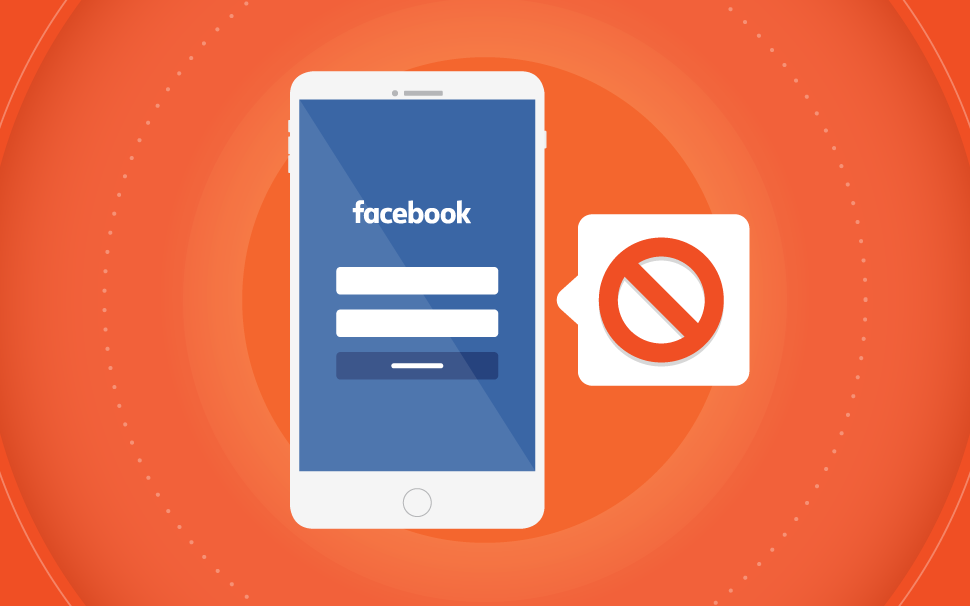
11 Mistakes that can block your Facebook account forever
Affiliates and Producers need to take care of their ad campaigns on Facebook, some mistakes can end up having bad results. Get to know more about it here.

What will we see in this post
Producers and Affiliates have a series of channels where they can advertise the products for sale on Hotmart, such as: blogs, videos, email lists, banners, search engine websites, etc.
All these channels are great opportunities to boost your digital business and increase your sales. However, to achieve good results it’s important that you know well the rules and characteristics of each of them.
Although it seems obvious, many Affiliates and Producers forget about it and end up having bad results or even worse: they get blocked on these channels. One of the most frequent cases among users are rejected ads and blocked Facebook accounts. You can find many people saying that because they didn’t know the policy of that social network they were blocked.
Thinking about these users, we, from Hotmart, had a little chat with the team from Facebook Brazil to understand the best practices when creating an ad campaign. We’ve separated all the information and tips on this Guide, so that you can create your ads on the biggest social media site in the world. Let’s go?
2 Questions you should ask yourself beforehand
Many Producers and Affiliates in the hurry of creating a campaign they forget to consider basic questions about online advertisement, regardless of the channel. They are:
- Do my ads and sales page in any way hide information?
- Within my sales page can, the buyer decide which information she will view, or do texts and videos show up without permission?
11 mistakes that can block your account on Facebook forever
Mistake 1: Advertising to websites that have poor Design and little information
To advertise on Facebook, forget about pages with white background and long videos. Within the social media you need to be more careful with your sales page, adding as much information as you can about the product and giving users the opportunity to browse and be sure of what they are buying.
Websites with only a video and sales button are blocked, so, pay attention to the quality of the pages you promote.
Besides the information about the product, the sales page should have:
- Privacy Policy and Terms of Use;
- Logo of the Product or Producer;
- Backlinks to other pages of the Producer, such as blog and other channels;
- Contact information of the Producer;
- Information about the company of the Producer.
Mistake 2: Advertise for pages with Autoplay
Autoplayer is a parameter the Producer can add, making with the sales video is played automatically. If used properly, this parameter can have a good effect, however communication channels such as Facebook don’t allow that websites with autoplayer are promoted.
The solution for this impasse is creating two pages: one with this parameter and one without it. Remember to make both pages available to affiliates. This way, you get to use the benefits of autoplayer where it is allowed and you will also have a page adapted for channels where it is allowed.
In short: sales page with autoplayer videos are forbidden by Facebook.
Mistake 3: Ads that lead to Capture Pages (a.k.a. Squeeze pages)
For those of you who don’t know it yet, the Capture Page is a page with the purpose of leading the visitor to take a specific action. Providing an email for the list, liking your Facebook page or watching a video are just a few of the possible actions your capture page can focus on. Unlike your website homepage, the Capture Page doesn’t need to contain tons of information. All it needs is the necessary information so that your customer take the necessary action.
This kind of page is forbidden by Facebook, after all it takes from the user her decision-making power, forcing her to provide, for example, an email to have access to the content promised on the ad.
Mistake 4: Advertising websites that interrupt the user’s reading
Sales page that have popups, lightbox or any other script that covers and gets in the way of the browsing are also forbidden. Facebook understands that, by using these tools, the website shifts the visitor’s attention to what really matters: the content.
Mistake 5: Advertising for websites with poor reputation on Facebook
On Facebook, advertising tools show people the ads that are the most relevant to them. They measure this factor by using the “Relevance Score”, taking into consideration not only the number of clicks, comments, and likes, but also how much value the page adds to the user.
Products with bad sales pages, little descriptive information about the product, or with aggressive promises have low Relevance Score and chances are that pages that advertise this kind of content are blocked. But how do you know if a product on Hotmart has low Relevance Score? It’s simple: if the sales pages make 1 out of the other 10 mistakes presented on this Guide, it probably has a low Relevance Score.
Mistake 6: Advertising for websites with a dubious Call to Action
Calls to Action are page links or functions that lead the user to perform an action. Using them is essential for the success of sales pages. However, when the Call to Action is within the purchase button, it’s necessary that it is very clear. Which means the user must know that by clicking the button she will be taken to the payment form.
For example, in a guitar course it’s common for the Producer to create purchase buttons that read: “Yes, I want to learn how to play the Guitar!” If you want to play the guitar it doesn’t mean necessarily that you want to buy a guitar course, does it? So, your button needs to be clear. Check out some examples of Call to Action for purchases that are accepted by Facebook:
- Yes, I want to buy the course!
- Buy the Course
- Buy Here
Mistake 7: Advertising for websites with no contact information
After all, who is responsible for the product? Having the contact information on the sales page is the shortest way for the Producer to solve any of the buyer’s questions. With this direct channel, the buyer saves time to find information and the Producer has the chance to make a sale in a personalized way. Phone number, address, chat, email. The more contact information, the better will Facebook’s evaluation be.
Mistake 8: Advertising for sales page with little information about the product
When buying online, a lot of questions come across the visitor’s mind. So, it’s important that most of them gets clarified while she is still on the sales page. Here is some essential information for the visitor’s decision-making process:
- It must make clear that the product is digital: lots of people are still making their first online purchase. And, making it clear that it is a digital product and how they can access is important to avoid future refunds.
- Detailing the modules/chapters of the course or ebook and/or all that is a part of the product: Explaining in details what the buyer will find in the product is essential so that she is sure about making the purchase. Therefore, all modules, bonus, and extra content need to be mentioned.
- Payment methods stated: Does your product accept PayPal payment? Is it possible to pay in installments? Make this information as clear as possible on the sales page, because they are a guarantee that the product is trustworthy.
Mistake 9: Advertising for websites without information about the Producer
The sales page should have links that direct the user to a blog, a brief description of the Producer, and even a logo/brand that represents the website. All these precautions are important and when they’re taken, Facebook understands that the website is professional, minimizing the chances of it being rejected.
Mistake 10: Ads with exaggerated promises
Ads that are about money, exaggerated promises or aggressive calls aren’t allowed by Facebook. It understands that, even if it’s a high-quality course and able to deliver results, such claims shouldn’t be added to the ad’s landing page.
Mistake 11: Ads with irregular images
When it’s time to choose the images for your ad, be careful with some rules from the ad policy of Facebook. Images that have over 20% of text, for example, are deleted and, on Facebook itself you can measure if the text is within the limits or not.
Another case for rejection of ads are images that feature a “before and after”. Be it regarding changes in the look or weight loss processes. Using images that simulate they are videos or some kind of content from Facebook is also forbidden. In short, here’s our advice: don’t create ads that can confuse or make the user have questions.
The good old sales page with just a video can work with an email list or on your blog, however, when using other channels, go for more complete pages, which provide more information to the buyer.
Do you know any other mistakes that can cause your Facebook page to be blocked? Tell us in the comments section below.




